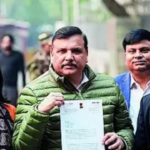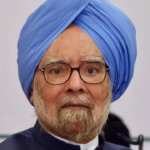New Delhi, October 28, 2024 — In a significant development in the high-profile Madhumita Shukla murder case, the Supreme Court of India on Monday sought a detailed response from the Uttarakhand government regarding a plea for the remission of sentence for one of the convicts. The plea, filed by the convict, is aimed at securing early release from prison, citing time already served and other grounds for remission.
The Background of the Case
Madhumita Shukla, a 24-year-old Hindi poet, was brutally murdered in her Lucknow apartment on May 9, 2003, a crime that shocked the nation. The murder investigation revealed political connections, with former Uttar Pradesh minister Amarmani Tripathi and his wife, Madhumani Tripathi, being convicted for orchestrating the killing. The murder was reportedly motivated by Madhumita’s pregnancy and her alleged affair with Amarmani Tripathi.
The court’s investigation concluded that Amarmani and Madhumani conspired to murder Madhumita to prevent their relationship from coming to light. Both were sentenced to life imprisonment by a special court in 2007, a verdict upheld by the Allahabad High Court and later the Supreme Court.
Plea for Remission
One of the convicts has now approached the Supreme Court, seeking remission of the sentence, after having spent nearly two decades behind bars. The convict argues that under the remission policies and given the time already served, along with good conduct during incarceration, the case qualifies for a reduced sentence or early release.
The Supreme Court bench, headed by Justice BR Gavai, has asked the Uttarakhand government to provide a comprehensive response to the remission plea. Uttarakhand, where the Tripathis are currently serving their sentences, has been given a deadline to submit its detailed reply addressing the legal and administrative aspects of the convict’s request.
Legal Experts Weigh In
Legal experts believe that the remission request, while not uncommon for convicts serving long sentences, will face scrutiny given the high-profile nature of the case. “This is a case that has long attracted public attention due to the involvement of political figures and the brutal nature of the crime. The Supreme Court will consider all factors, including the societal impact, the convict’s conduct, and the state’s stance before making a decision,” said senior advocate Ramesh Gupta.
The decision to grant remission or uphold the sentence will depend on whether the convict can demonstrate rehabilitation and whether the Uttarakhand government supports the plea based on its policies and the convict’s conduct.
Public Outrage and Reactions
The murder of Madhumita Shukla has remained a sensitive and emotional issue for the public, especially in Uttar Pradesh, where the crime unfolded. Many believe that the severity of the crime warrants the full serving of the life sentence without remission. “Justice for Madhumita should not be compromised. She was silenced in a most cruel way, and the guilty must serve their full sentences,” said Shukla’s sister, Nidhi Shukla, who has been a vocal advocate for ensuring justice in the case.
On the other hand, some legal activists argue that remission is a constitutional right of every convict, provided they meet the criteria set by law. “Remission is not about reducing the gravity of the crime but recognizing that convicts, after serving a substantial part of their sentence, can be reformed. It’s a matter of evaluating their behavior and the broader legal framework,” said advocate Manisha Singh.
The Road Ahead
As the Uttarakhand government prepares its response, the next hearing of the case is expected to see heated arguments from both sides. The Supreme Court’s decision will set a crucial precedent, especially in cases where political figures are involved, and the balance between justice and rehabilitation is under consideration.
The Madhumita Shukla case continues to be a defining moment in India’s legal and political history, and the upcoming ruling on the remission plea will be watched closely by both legal observers and the public alike.










